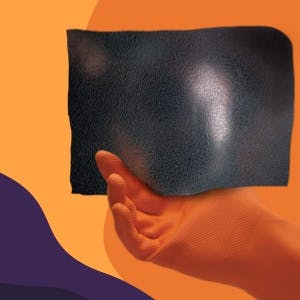- Home
- All updates
- EDGE Insights
- Industries
- Company Search
- My Watchlists (Beta)
All Updates
Modern Meadow launches prototype of bio-based leather material
EKORE raises EUR 1.3 million (~ USD 1 million) in seed funding to strengthen platform
Culina Health raises USD 7.9 million in Series A funding to expand offerings and expand team
ViGeneron receives IND clearance for VG801 gene therapy
Reflex Aerospace ships first commercial satellite SIGI
Vast partners with SpaceX for two private astronaut missions to ISS
Carbios appoints Philippe Pouletty as interim CEO amid plant delay
BlueQubit raises USD 10 million in seed funding to develop quantum platform
Arbor Biotechnologies receives FDA clearance for ABO-101 IND application
Personalis partners with Merck and Moderna for cancer therapy development and investment
COTA partners with Guardant Health to develop clinicogenomic data solutions for cancer research

Bio-based Materials
Modern Meadow launches prototype of bio-based leather material
-
Modern Meadow (MM), a New York developer of collagen-based materials from plant proteins, has published its findings on “Bioleather1 (BL1),” its latest prototype alternative to chrome tanned bovine leather.
-
BL1 is a bio fabricated material created using Modern Meadow’s proprietary “BioAlloy'' technology, a process that uses bio-based polymers and proteins to create a sustainable alternative to traditional leather for high-performance applications.
-
According to the company’s research findings, BL1 reduces greenhouse gas emissions by 80% and 20% compared to traditional and synthetic leather, respectively. It also reduces water consumption from groundwater sources, land use, and the subsequent degradation of water bodies during the process by 95% compared to conventional leather production.
Contact us
By using this site, you agree to allow SPEEDA Edge and our partners to use cookies for analytics and personalization. Visit our privacy policy for more information about our data collection practices.